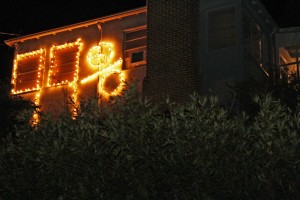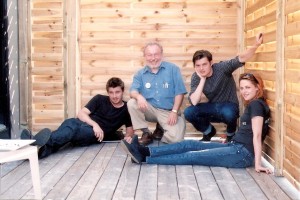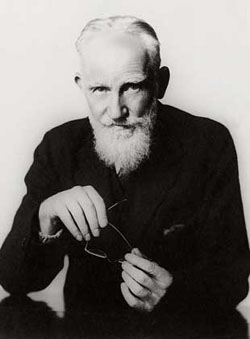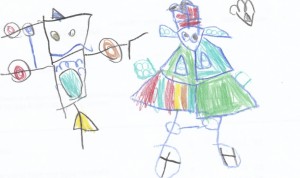Photog Susan McRae: She’s Always On The Scene When Folks Are Mad

One recent Monday, a man climbed up to the top of a police radio tower. Cops were on the scene in minutes, but it took hours to figure out how to get him down. Click for larger version.
FREE TRADE DOESN’T WORK
By LIONEL ROLFE
There’s been something wrong in this land for several decades now–most people have been sensing that but haven’t been able to put a name to it. Finally, economist Ian Fletcher wrote a book called, “Free Trade Doesn’t Work” which pretty effectively says it all.
He also, never modestly, offers up some beguiling simple solutions to the problem.
I would have never expected an economist to come up with any answers. I rarely ever turned to proponents of the “dismal science” because I always figured that was too generous a description of whatever it is they do. For me, economists have always had more in common with the clergy who dominated most of human history up until the last century or so than real scientists. Psychology and economics and other pseudo-sciences have moved into the fray in the last century or two, with new explanations of things. Not necessarily better ones. Read more
A French Philosopher Challenges Europe’s Sympathy for Third World Despotisms
The Tyranny of Guilt: An Essay on Western Masochism – Pascal Bruckner. Translated from the French by Steven Rendall. Princeton: Princeton University Press, 2010 (original French version, 2006).
Leslie Evans
Pascal Bruckner is one of that inimitable French breed of public intellectuals: philosopher, academic, novelist, and polemicist. Born at the end of 1948, he is a veteran of the sixties, when he had a certain sympathy for Maoism. Today he is a firm liberal, in American terms perhaps a very moderate leftist. He is a leading figure among the New Philosophers who broke with Marxism in the early 1970s, others including Alain Finkielkraut, André Glucksmann, Alain Badiou, and Bernard-Henri Levy, though even those grouped under this sobriquet share no common platform.
Bruckner presents an unapologetic defense of liberal democracy in its confrontations with religious and third world authoritarians. He endorsed the NATO intervention in Bosnia and Kosovo in defense of Muslims under attack by Serbian forces in the former Yugoslavia. He supported the overthrow of the Saddam Hussein dictatorship in Iraq, though he was later critical of the U.S. conduct of the war. And, like Paul Berman in his Flight of the Intellectuals, Bruckner came to the defense of Somali exile Ayaan Hirsi Ali when she was contemptuously labeled an “Enlightenment fundamentalist” by leftist authors Ian Baruma and Timothy Garton Ash for her campaign against Islamic female genital mutilation, the two authors contrasting her unfavorably to the supposed Islamic moderate Tariq Ramadan. Bruckner dismissed Ash and Baruma as epitomizing the “racism of the anti-racists.” Read more
Woman & Beast, Valentine Lovers
Why Edendale
Phyl M. Noir
Let me step into these stories to explain what I meant to write before they end. Besides, the ending is under construction.
I am from Edendale. I examine it from the inside.
Los Angeles lacks the human presence on the streets that other large cities have. It is sometimes seems as if this city exists without people. It is a city built for the profit in real estate development
This city is at the end of America: socially fragmented and spatially dispersed. The automobile allowed development in previously inaccessible areas, and the city and state subsidized roads and freeways instead of a good public transportation system. See, Robert Fogelson, Fragmented Metropolis (1967).
One of Alison Lurie’s protagonists in The Nowhere City (1965) defines Los Angeles as the center of a revolving concrete donut on top of a store on Sepulveda: “That big empty hole going around and around up in the air … that’s what this city is! … a great big advertisement for nothing.” Lurie wasn’t from here. She was from Chicago and grew up in White Plains, and her perceptions are an outsider’s. Read more
After The Holidays In The City Of The Angels: A Photo By Susan McRae

Click for more details. Christmas and New Year's had just ended, so camerwoman Susan McRae ventured forth on a cold and windy night to find some reality just up the street.
The Truth About On The Road

Gerald Nicosia with actors at Beat Boot camp, Montreal, July 2010. From left, Garrett Hedlund, Nicosia, Sam Riley, Kristen Stewart
Lionel Rolfe
In his latest book, Gerald Nicosia has unlocked the dynamic of Jack Kerouac and Neal Cassady, and not a moment too soon. Nicosia, the author of “Memory Babe,” the definitive Jack Kerouac book, was an advisor to the “On The Road” movie due to be premiered in May at the Cannes Film Festival. “On The Road,” published in 1957, was of course, the book that made Kerouac famous. It was inspired by Jack London’s famed book, “The Road,” published in 1907.
Nicosia’s new book is “One And Only: The Untold Story of On The Road.” Read more
Soaring into space
By Phyl van Ammers
The author interviews the artist Ashton Richard Brick and the artist’s mother Olga Justine Brick.
PVA: Tell me, what is the name of this picture?
ARB: This is No. 467.
PVA: What does it mean? Read more
George Bernard Shaw: Can His Reputation Survive His Dark Side?
By Leslie Evans
 It is with a certain sadness that I come to write this. George Bernard Shaw, through his plays, was one of my early heroes. I knew only the good of him then. More recently I have come to learn things, about his political views, that I could have known then but did not, and knowing, would have seen him differently. Learning them prompts me to want to know more about his contradictory character, to decide anew what we should think of him. Read more
It is with a certain sadness that I come to write this. George Bernard Shaw, through his plays, was one of my early heroes. I knew only the good of him then. More recently I have come to learn things, about his political views, that I could have known then but did not, and knowing, would have seen him differently. Learning them prompts me to want to know more about his contradictory character, to decide anew what we should think of him. Read more
Poems By Julia Stein, From Her New Book “What Were They Like.”
Dear Joe
We miss you.
We’re glad you liked the cookies that mama mailed you.
Grandma loves the teapot you sent her from Kuwait.
Please come home soon
for my high school graduation.
My little brother likes your photos.
Please come home from Kuwait. Read more






